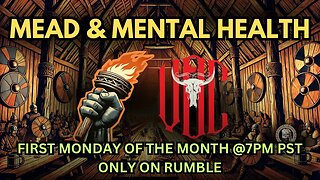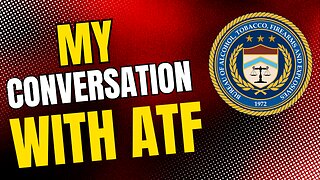Premium Only Content

How Banks Work
Banks play a crucial role in our modern economic system, serving as financial intermediaries between individuals, businesses, and governments. Understanding how banks work is essential for anyone looking to manage their finances effectively. Here's a brief overview of the key aspects of how banks operate:
Deposit-taking: Banks accept deposits from individuals and businesses, allowing them to securely store their money. These deposits can be in the form of checking accounts, savings accounts, or fixed-term deposits.
Lending and credit creation: Banks use the deposits they receive to provide loans and credit to borrowers. They carefully assess the creditworthiness of borrowers and charge interest on the loans they provide, making a profit in the process.
Fractional reserve banking: Banks operate on the principle of fractional reserve banking, which means they keep only a fraction of the deposited funds as reserves and lend out the remainder. This practice allows banks to create money by extending credit, contributing to the overall money supply in the economy.
Interest and fees: Banks earn revenue through the interest charged on loans and the fees they impose on various financial services, such as account maintenance fees, transaction fees, and overdraft fees.
Risk management: Banks employ risk management strategies to mitigate potential financial risks. They carefully evaluate the creditworthiness of borrowers, diversify their loan portfolios, and maintain adequate capital reserves to protect against potential losses.
Central banking: Banks are subject to regulation and oversight by central banks, which serve as the monetary authority of a country or region. Central banks regulate the money supply, set interest rates, and provide a lender of last resort function to ensure the stability of the banking system.
Electronic banking: In the digital age, banks offer various electronic banking services, such as online banking, mobile banking, and ATM services, allowing customers to conveniently manage their accounts, make transactions, and access financial services remotely.
Financial intermediation: Banks facilitate financial transactions and provide a range of services, including payment processing, foreign exchange, investment advisory, and wealth management. They act as intermediaries between savers and borrowers, ensuring the efficient allocation of capital in the economy.
Understanding how banks work empowers individuals to make informed financial decisions, manage their accounts effectively, and utilize the services and products offered by banks to meet their financial goals.
-
 28:01
28:01
Side Scrollers Podcast
7 hours agoNEW SERIES! Smash JT Has a Full-On Meltdown | Nerd Duel ft. Lady Desiree & You, Me & The Movies
35.9K2 -
 2:13:28
2:13:28
I_Came_With_Fire_Podcast
10 hours agoMEAD & MENTAL HEALTH WITH I CAME WITH FIRE AND VOC!!!
54.6K4 -
 1:10:04
1:10:04
John Crump Live
6 hours ago $5.56 earnedYes I talked To The ATF
41K3 -
 6:01:28
6:01:28
Amish Zaku
9 hours agoVerDanceKey Warzone - Birthday Fun
47.2K5 -
 5:15:22
5:15:22
NeoX5
7 hours agoKhazan: The Road Less Taken | Part 5-2 | Rumble Studio | Rumble Gaming
39.5K2 -
 LIVE
LIVE
TwinGatz
12 hours ago🔴LIVE - He Is Doing His Best | ARMA Reforger
781 watching -
 54:40
54:40
LFA TV
17 hours agoSee God in the Trade War | TRUMPET DAILY 4.7.25 7PM
65.1K15 -
 1:18:30
1:18:30
Sarah Westall
10 hours agoNew Study: EMFs Literally Put You into a Brainwave Cage; Reclaiming your Mind w/ Ian & Philipp
81.5K23 -
 35:54
35:54
SantaSurfing
10 hours ago4/7/2025 - Trump Tariff impacts - he wants no Capital Gains Tax! Inflation falls to 1.22%!
48K35 -
 59:17
59:17
We Like Shooting
21 hours ago $3.59 earnedDouble Tap 404 (Gun Podcast)
31.8K1